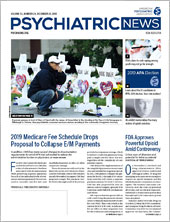Youth who experience depression before turning 13 frequently show several traits associated with attention-deficit/hyperactivity disorder (ADHD), according to a study published October 14 in JAMA Psychiatry.
This study, conducted by Frances Rice, Ph.D., of the Cardiff University in the United Kingdom and colleagues, made use of data available from the Avon Longitudinal Study of Parents and Children (ALSPAC). ALSPAC is a large, ongoing research study of nearly 15,000 women in the United Kingdom who gave birth between 1991 and 1992, and their children.
The children in the study answered short depression-related questionnaires several times between the ages of 10 and 18. Most respondents (73.7 percent) had persistently low depression symptoms throughout adolescence; 17.3 percent of the youth had later-onset depression, in which elevated depression symptoms first appeared when they were about 16.5 years old; and 9 percent had early-onset depression that typically appeared when the youth were about 12.5 years old.
A closer look at the two groups of youth who developed depression showed some significant differences in how the symptoms presented. Youth with early-adolescent depression had higher rates of ADHD than the late-onset group (6.3 percent versus 0.9 percent), and they were about five times more likely to have problems with social communication and pragmatic language skills (for example, understanding what is appropriate to say and when it is appropriate to say it).
Rice noted that she was surprised to find that more than 70 percent of the youth in the early-onset depression group were girls. While depression is more common in women when looking at adults, studies have found that adolescent girls and boys tend to have similar rates of depression. Additionally, given the connection between early-onset depression and ADHD—which occurs at a higher rate in boys—one might expect a higher ratio of males with early depression.
Studies have found that boys with neurodevelopmental problems such as ADHD or autism tend to underreport their symptoms, so Rice said it is possible that the participant questionnaires used in the study failed to capture some of the boys with early-onset depression. It is also possible that girls with symptoms of ADHD may face additional stressors because parents and teachers tend to be more accepting of such social problems in boys. These societal pressures might trigger depression, Rice said.
Rice said that she believes that understanding more about these two possible subtypes of depression in adolescents can help with developing better ways of supporting these young people and their families.
This study was supported by grants from the UK Medical Research Council (MRC). The ALSPAC is jointly supported by the MRC, Wellcome Trust, and the University of Bristol. ■
“Characterizing Developmental Trajectories and the Role of Neuropsychiatric Genetic Risk Variants in Early-Onset Depression” can be accessed
here.

